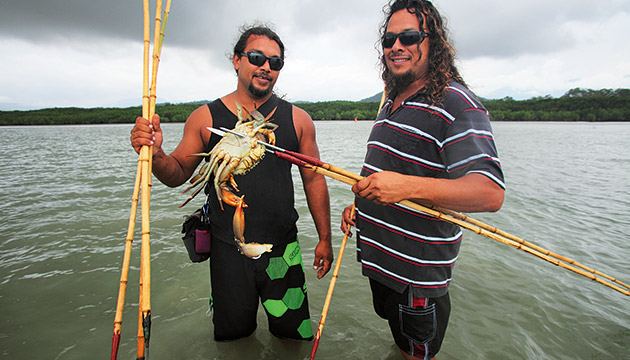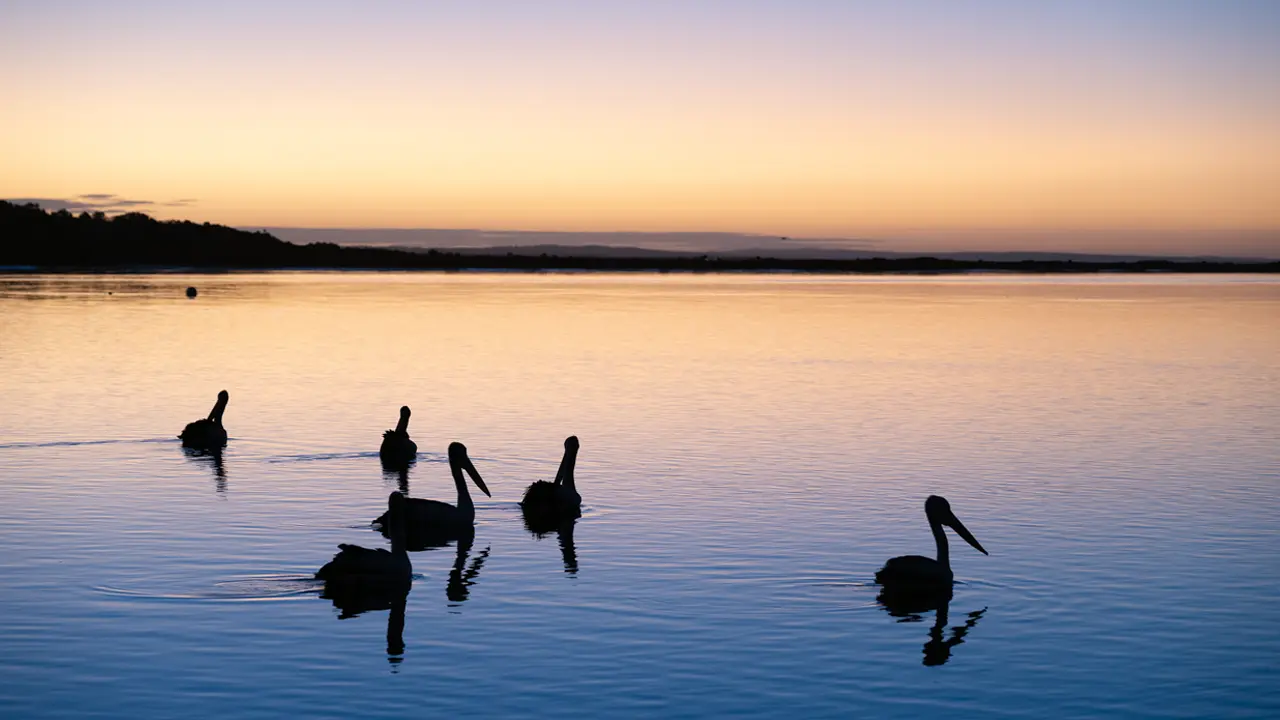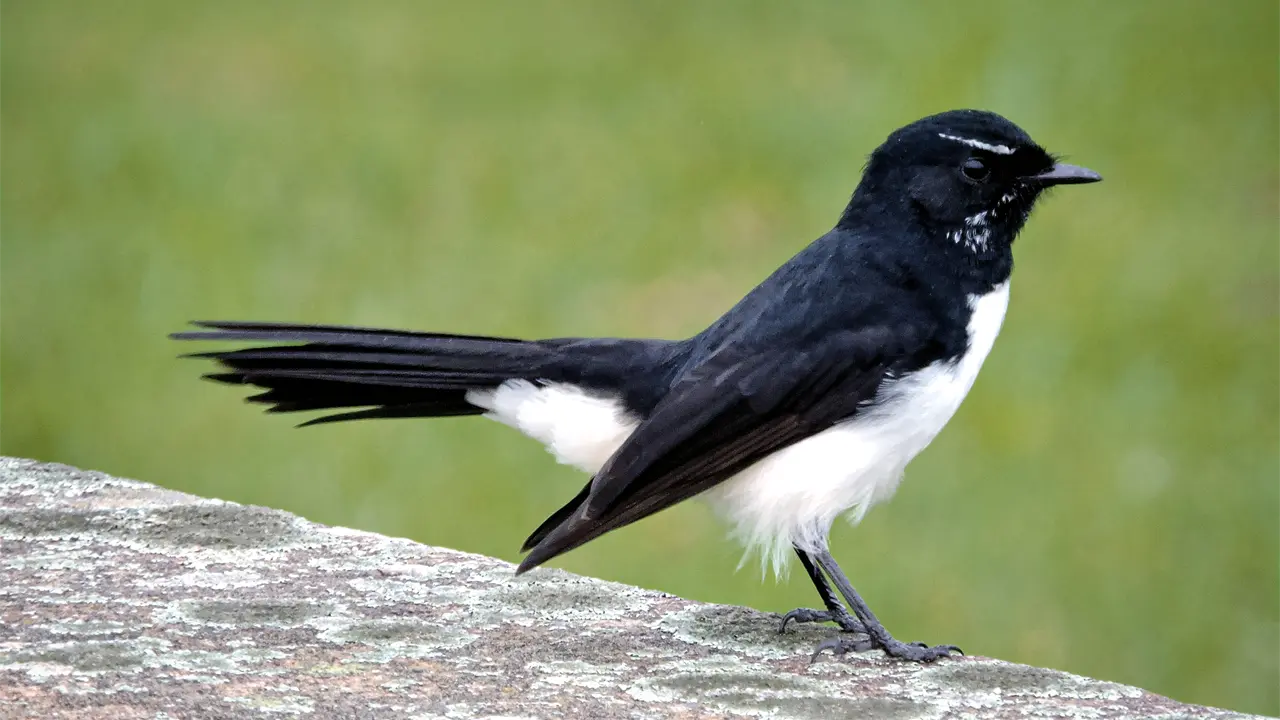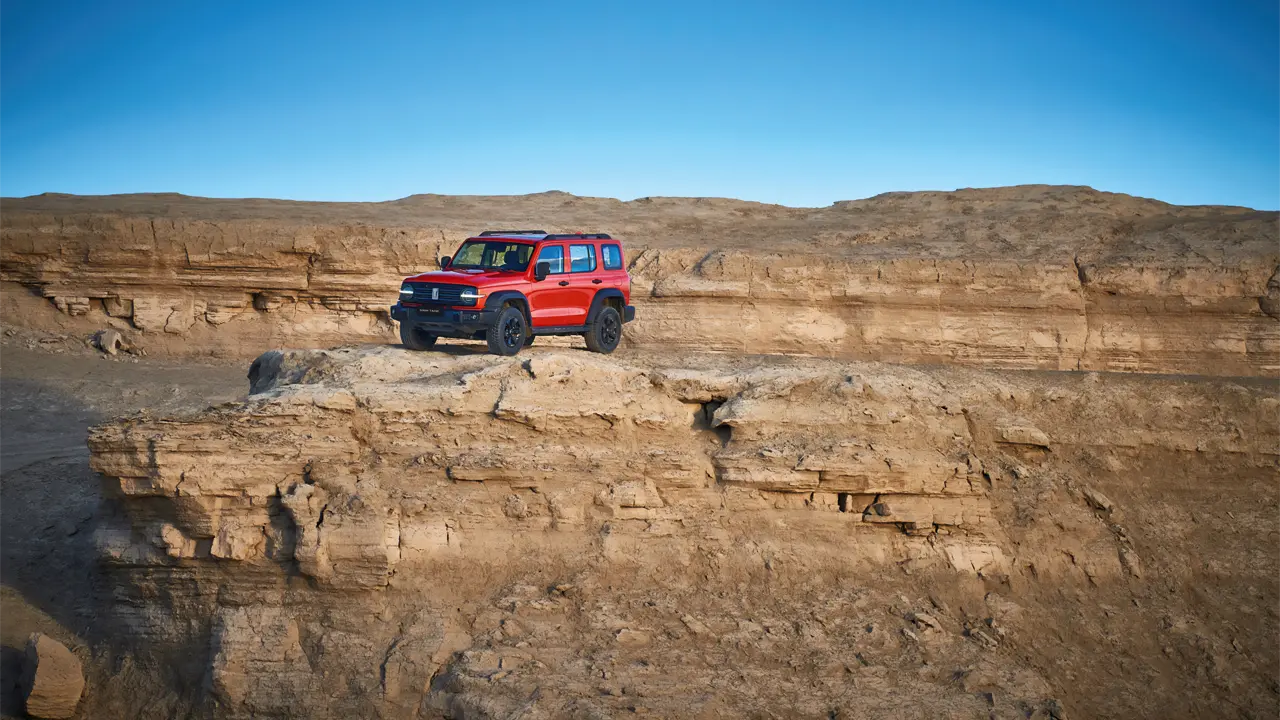Brandon and Linc Walker have turned their traditional knowledge into a successful coastal business for visitors hungry for an authentic Indigenous experience.
Story By James McEwan
It's overcast, showery and sultry as Brandon Walker strides through waist-deep water over the Kuyu Kuyu sandbars. He’s concentrating intensely on stalking mudcrabs and fish concealed in the sand. Black polarised sunglasses mask his eyes, allowing him to see his prey. Across his shoulders the former professional rugby player carries three-metre-long steel-tipped bamboo spears.
Kuyu Kuyu (Cooya Beach) is 20 kilometres from Port Douglas, Qld, and is the traditional fishing grounds of Brandon’s people, the Kuku Yalanji. At low tide the shallow, crystal-clear water and sandbars seem to stretch to the horizon. Behind the shoreline are the blue-green mountains of the Daintree rainforest.
This unique coastal area has three diverse ecosystems – beach, mangroves and coral reef. These systems are connected to each other by constantly changing mudflats, sandbars and tidal lagoons. The area teems with crustaceans and the best eating fish in the tropics, the sought after barramundi, mangrove jack and giant trevally.
Brandon and his guests have given up hunting for crabs, squelching barefoot through the black ooze of the mangrove mudflats on the shoreline, filling buckets with fat mussels and periwinkles instead. There were plenty of crab burrows but, as Brandon says, “Sometimes nobody’s home, the crabs are out fishing and we have to follow them.”
Brandon demonstrates how to hunt and fish in the sustainable Aboriginal way, the natural harmony with the landscape helping his people to survive for thousands of years. It boils down to simply leaving enough for next time.
His commentary on the beach walk ranges from edible plants and nuts to natural pharmaceuticals to spinning cloth and ropes from suitable trees. Brandon has a deep knowledge of the historic relationship of local tribes with other language groups in the tropical north.
“There are around 1000 countries that divide up Aboriginal Australia, each with their own language and customs,” he says. “I would never go hunting in another person’s country without their permission and taking one of them with me.”
This story excerpt is from Issue #81
Outback Magazine: Feb/Mar 2012










